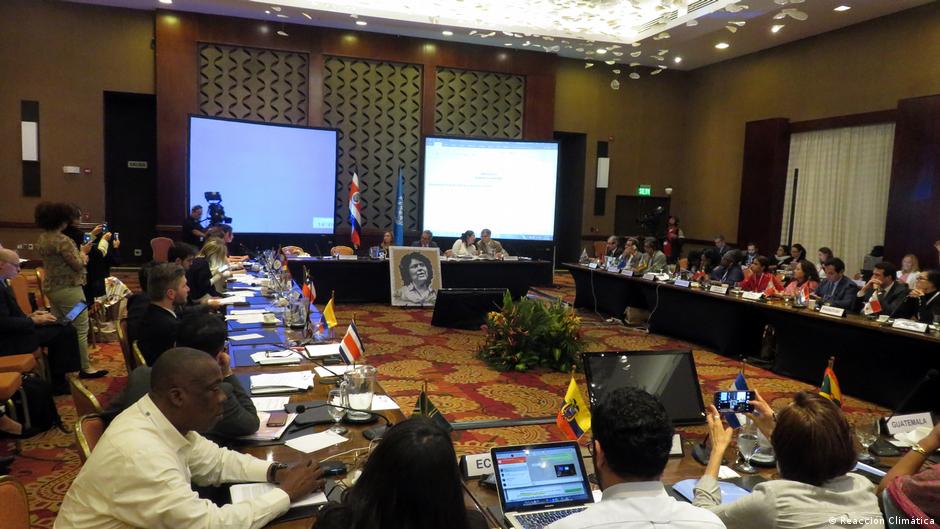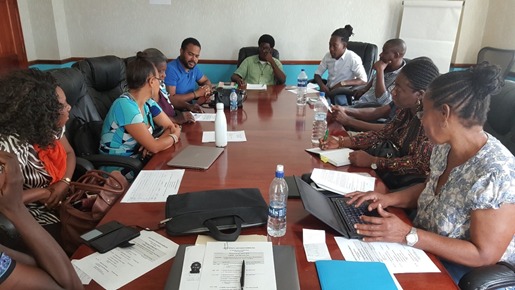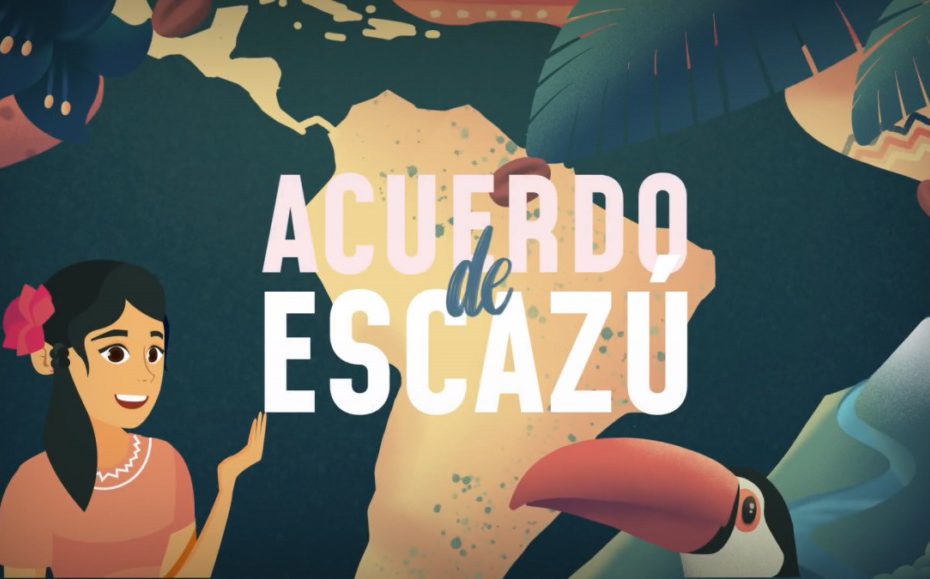A collaboration by Ruth Spencer (Antigua and Barbuda), Ana Di Pangracio (Argentina) and Amelia Arreguín (Mexico)
As the Escazu Agreement enters into force on April 22, International Mother Earth Day, we the Women 4 Biodiversity, the CBD Women’s Caucus from the Latin America and Caribbean region (LAC), Antigua and Barbuda, Argentina, Saint Lucia, Mexico, Bolivia are showing bold leadership as we see this platform having the potential for transformative change, for women empowerment regarding environmental issues, Integrated approaches for nature resilient development providing the strengths in biodiversity, water and climate knowledge and capacity building, disaster risk reduction strategies, as well the avenues for collaboration that the Agreement has opened up to reinforce environmental governance and justice.
The Escazú Agreement is the first regional environmental treaty, and is the only one outcome from Rio+20. It strengthens three rights that are substantial for the consolidation of just, equitable and sustainable societies. It is also the first agreement in the world to include provisions on human rights defenders in environmental matters. This is a highly relevant issue in LAC since it is the most dangerous region on the planet, according to Global Witness, for those advocating for environmental protection. There is a strong criminalization of protest, risk of life, mafias that appropriate territories and affect biodiversity, hand in hand with an extractivism that deepens everyday. The vulnerability and risk of park rangers, people protecting territories, indigenous peoples and local communities fighting against mega dams, against illegal trafficking of species and genetic resources among other struggles must be recognized and addressed effectively.

In this regard, State Parties to Escazú have to ensure a safe and conducive environment for people, groups and organizations that promote and defend human rights in environmental matters, so that they can act without threats, restrictions and insecurity; take adequate and effective measures to recognize, protect and promote all their rights, including their right to life, personal integrity, freedom of opinion and expression, peaceful assembly and association, and free circulation, as well as their ability to exercise their rights to access; ad to adopt appropriate, effective and timely measures to prevent, investigate and punish attacks, threats or intimidation that defenders may suffer in the exercise of the rights recognized in the Escazú Agreement.
This legally binding agreement, signed by 24 countries and ratified as of today by 12, offers an unparalleled platform to strengthen participatory and inclusive environmental action nationally and regionally. By applying the whole-of-society and whole-of-government approaches, the Agreement has been forging partnerships both locally and regionally through capacity building and cooperation to tackle the through integration the targets and agendas of the Rio Conventions more effectively.
The Escazú Agreement aims to leave no one behind in creating a healthy and sustainable planet for present and future generations through access to information, inclusive participation and access to justice, all in the environmental realm. It places its focus on equality and non-discrimination, supporting particularly persons and groups in vulnerable situations Such postulates are particularly relevant towards our 2050 Vision of Living in harmony with nature.
The Escazú Agreement is a fundamental pillar for the construction and exercise of environmental citizenship in LAC because it seeks to ensure the rights of access and the protection of people who defend the environment; but, in addition, one of its aims is to ensure the enjoyment of all those human rights that directly depend on a healthy environment. These provisions include the right to life, and to water and sanitation, to health, to food, and other rights such as education, culture, housing, and freedom of expression and association.

However, without a comprehensive view, recognizing the different challenges that women, youth and indigenous peoples face in knowing and exercising their rights in general, and their environmental rights in particular, the Escazú Agreement will fail to implement. Therefore, the treaty has to ensure to apply a gender perspective, with an intercultural and youth approach, in order to be able to make decisions that contribute to the progressiveness of women’s access rights to ensure their full exercise and their protection as defenders (women are often on the frontline of environmental demands).
There are many opportunities arising from the Escazú Agreement to help us ensure rights-based approaches to biodiversity conservation, recovery and sustainable use, environmental governance systems, and a just world that values and conserves nature. The tenets of the Agreement lay the foundations for integrated and coherent approaches that can maximize efforts to tackle biodiversity crisis through capacity-building and cooperation, and the inclusion of vulnerable populations, nature defenders, and civil society in relevant decision-making and policy formulation.
Let us embrace the Escazú Agreement as a concrete regional contribution to achieve the objectives of nature protection at all levels. Let’s celebrate this landmark moment of its entry into force of the Agreement and for more countries joining in soon via ratification. Let’s work together for its effective and inclusive implementation!
Follow the Escazu process at:

I am so keen to work together and contribute to the implementation of this call.
Hi Belinda, thank you for the interest and we would welcome your contributions. You can do that by joining our mailing list to stay informed and contribute. You can go to the following linkhttps://www.women4biodiversity.org/advocacy/#ournetwork and if any trouble, feel free to email me at [email protected]
This is very interesting and a step in the right direction as women and children are the vulnerable groups that are most affected by environmental crises. Hence there is need to involve them in all facets of decision making process that enhance the protection of their resources. I will like to know more about women in biodiversity because I have interest in developing a platform that brings women together in order to raise awareness on biodiversity conservation.
Hi Bintu, it is wonderful to know that you are also looking to develop such a platform, the more we have collective spaces like this the better. Please feel free to send me a message and to follow our work, join our mailing list at https://www.women4biodiversity.org/advocacy/#ournetwork